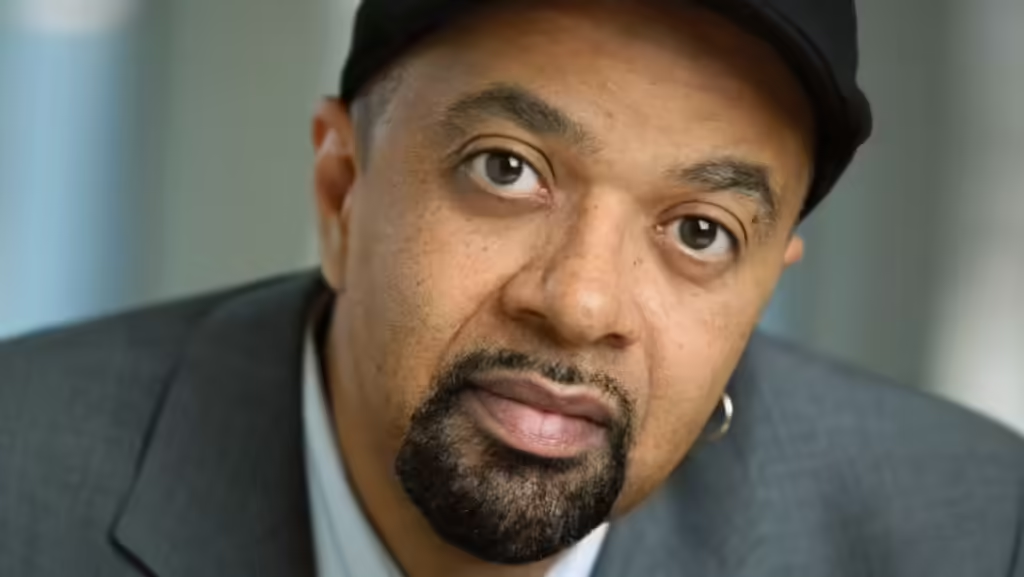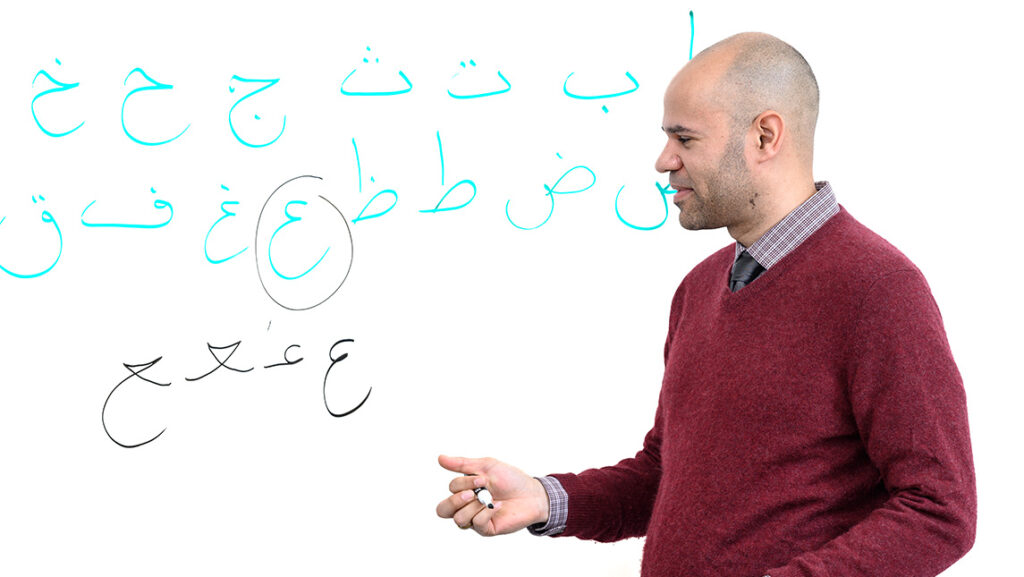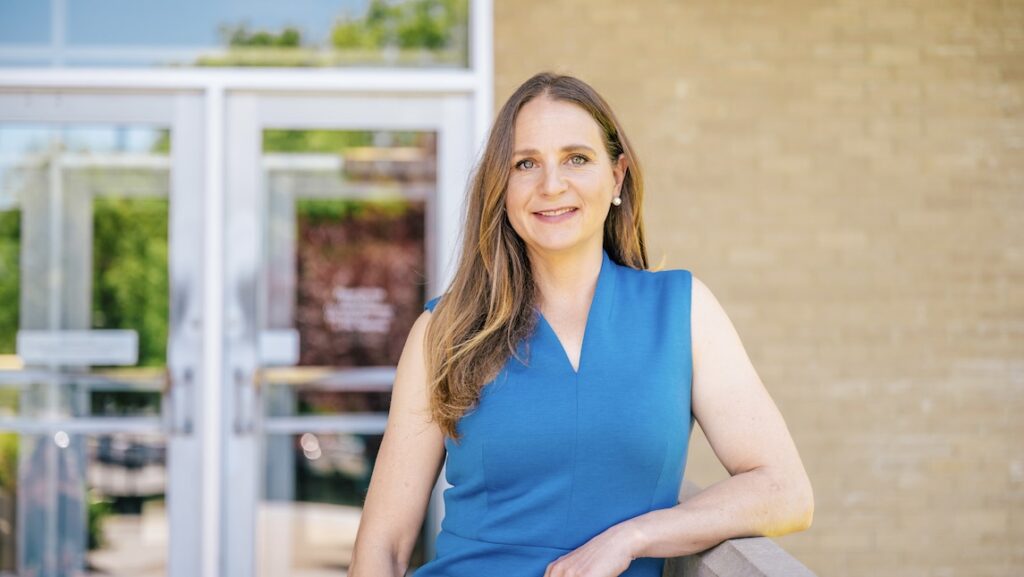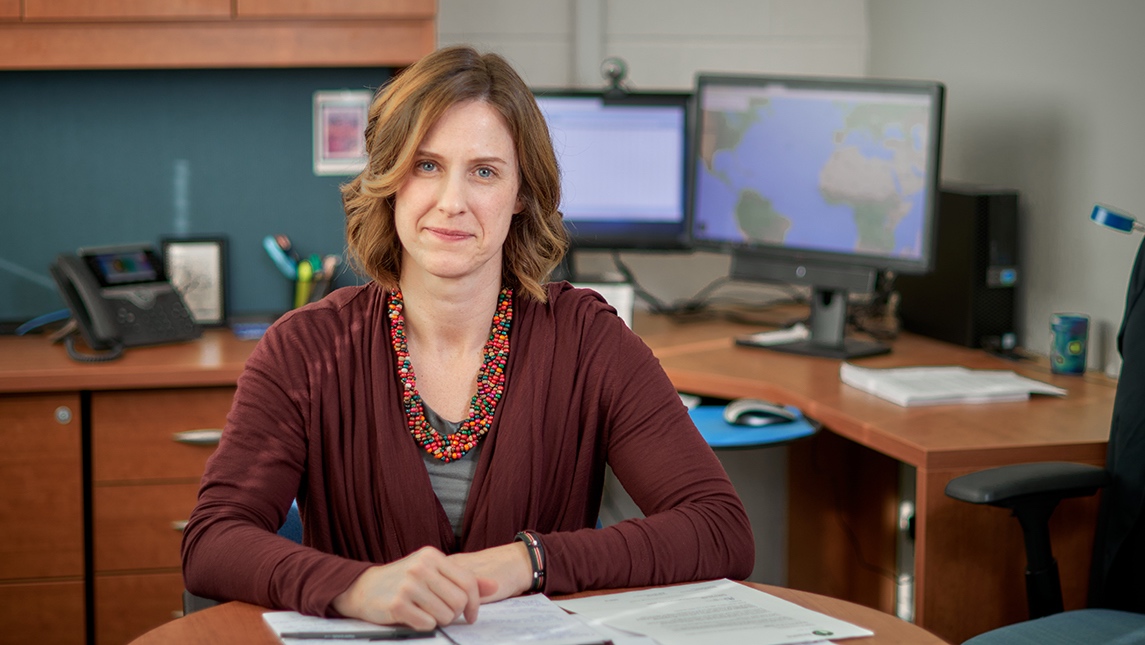
Survey instruments–questionnaires that are used to collect information on a respondent–are vital to public health research. Many survey instruments on sexual and reproductive health have been developed for use in high-income countries, and oftentimes these tools are too specific to be used across various countries and contexts, limiting the ability to make cross-country comparisons. Thanks in part to Dr. Jennifer Toller Erausquin, assistant professor in the Department of Public Health at UNC Greensboro, there will now be a survey instrument that will provide a more comprehensive picture of sexual and reproductive health, particularly in low- and middle-income countries.
Erausquin was one of 18 experts selected by the World Health Organization (WHO) to travel to Nairobi, Kenya Jan. 14-16, 2020 to attend a “hackathon” at the African Population Research Health Center. A hackathon is a sprint-like event bringing together diverse experts around a common issue or objective. This hackathon involved synthesizing and harmonizing a comprehensive survey instrument on sexual and reproductive health, to be used as a publicly available set of questions that any ministry of health, nonprofit organization, or other nongovernmental organization could use for program evaluation and surveillance type of measuring.
When the WHO sent out an open call for the development of a sexual health survey instrument, Erausquin worked with five former and current UNCG public health education faculty, doctoral, and master’s students to collaborate on submissions. Collaborators include Wendasha Jenkins PhD ’17; Alyssa Crawford, a current master of public health student; Meredith Gringle PhD ’16 and assistant professor in public health education; Brittany Chesney, a current master of public health student; and Rachel Faller, a current PhD student.
The WHO’s open call resulted in 175 entries, which went through three to five rounds of review before selecting Erausquin and the other 17 experts.
“It was a big, welcome surprise to get recognized and chosen by the WHO team,” said Erausquin. “There are people all over the world with good ideas and important experiences relating to the topic and data collection methods being proposed. To know that my perspective and experiences were valued means so much to me.”
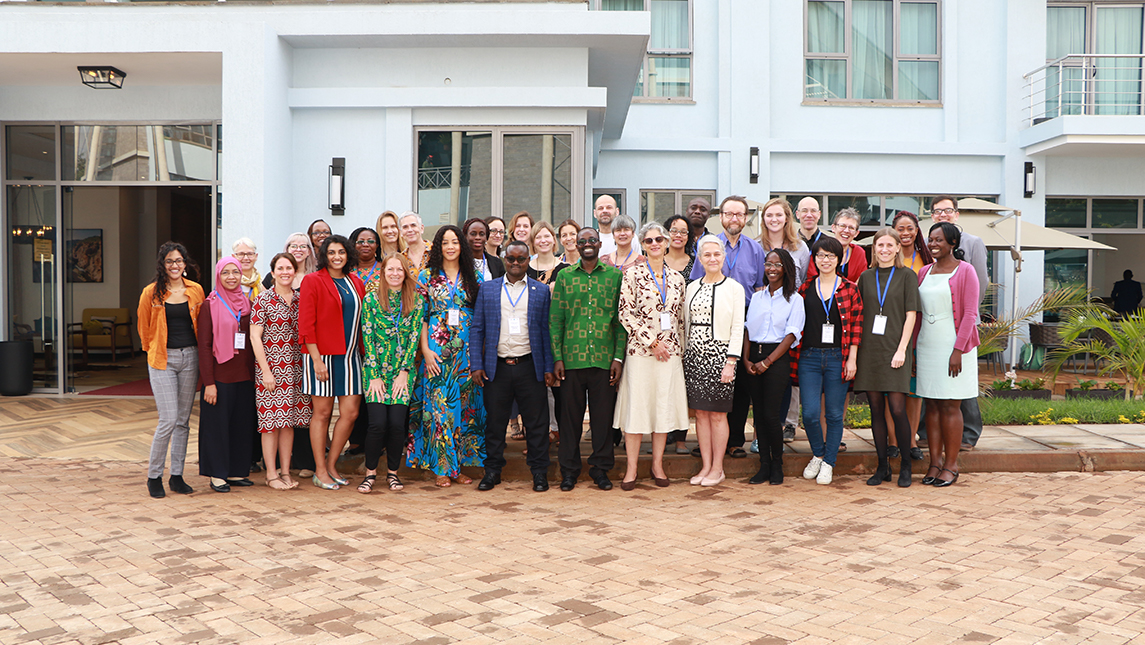
Throughout her career, Erausquin’s research has focused on the development and use of survey measures for a variety of sexual and reproductive health outcomes. She has spent much of her career using population-representative survey data from low- and middle-income countries. As a result, it’s very clear to her what kinds of survey questions tend to be easy or difficult for participants to answer. It’s also clear how important these surveys can be to understanding population health needs and priorities.
“As a public health researcher, I know that it is really valuable to plan adequately for needs regarding reproductive and sexual health services. It’s also valuable to be aware of and track behaviors associated with sexually transmitted infections, unplanned pregnancies, and other health outcomes.”
The survey is now entering the pilot phase where it will be tested in several countries in the coming months. Once the survey instrument is publicly available and widely used, the WHO and researchers will be able to look at differences across countries and contexts over time.
“I think in general, sexual health survey data is often really difficult to compare across studies and between countries because the survey instruments are really different,” said Erausquin. “It is important to have a unified set of measures that will allow for those comparisons. This survey instrument has the potential to provide information on what current sexual practices and current reproductive and sexual health needs are, and ultimately fulfill those needs.”
For this work, Erausquin will receive recognition from the HRP, the UNDP/UNFPA/UNICEF/WHO/World Bank Special Programme of Research, Development, and Research Training in Human Reproduction, which is the main instrument within the United Nations system for research in human reproduction.
“I’m very proud of this work, and I’m excited to see the survey instrument get used. A consortium of over 25 countries is now discussing whether the instrument can be part of a rapid, web-based survey of sexual and reproductive health in the context of COVID-19. My work with this team has encouraged me to dig in my heels on my research in sexual health. There are broader implications for the work that I do, and I look forward to sharing that to improve the field of sexual and reproductive health.”
Story by Alexandra McQueen, University Communications
Photography by Martin W. Kane, University Communications
